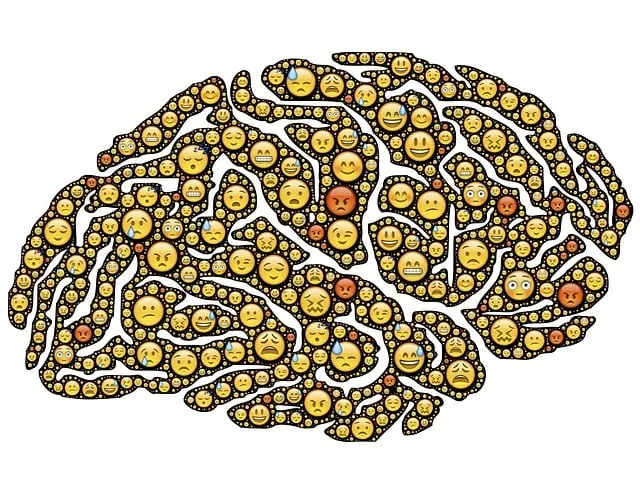Kaiser Permanente in Boulder offers comprehensive mental health services through advanced data analysis. By tracking trends, identifying at-risk groups, and implementing targeted interventions, they provide holistic care that addresses physical and mental wellness. Their strategic initiatives leverage analytics for personalized treatments, enhancing understanding of emotional intelligence and improving patient outcomes. Ethical considerations, including strict privacy standards and conflict resolution techniques, ensure fair and safe mental health analysis, reflecting Boulder's commitment to innovative and compassionate healthcare.
“Boulder’s Kaiser Permanente stands at the forefront of integrating mental health data analysis into patient care. This article delves into the comprehensive approach Kaiser employs in collecting, analyzing, and interpreting mental health data. From understanding the nuances of data collection to navigating ethical considerations, we explore how this process enhances patient care. Furthermore, we highlight the game-changing potential of data-driven insights in transforming mental health services at Kaiser and beyond.”
- Understanding Mental Health Data Collection at Kaiser
- Analyzing and Interpreting Mental Health Trends
- Ethical Considerations in Mental Health Data Analysis
- Enhancing Patient Care through Data-Driven Insights
Understanding Mental Health Data Collection at Kaiser

At Kaiser Permanente, based in Boulder, mental health data collection is a cornerstone of their comprehensive healthcare services. The organization recognizes the importance of understanding and addressing mental wellness as an integral part of overall health. Through various initiatives, Kaiser offers a range of mental health support, from traditional therapy sessions to innovative practices like conflict resolution techniques and compassion cultivation.
Their data analysis focuses on interpreting trends and patterns in mental health outcomes, helping healthcare professionals tailor treatments effectively. This approach not only enables the identification of at-risk populations but also guides the implementation of targeted interventions, including programs that promote mental wellness and teach valuable conflict resolution techniques. Such strategies contribute to a holistic view of patient care, ensuring that both physical and mental health concerns are addressed with equal compassion and consideration.
Analyzing and Interpreting Mental Health Trends

In the realm of mental health care, data analysis and interpretation play a pivotal role in understanding trends and improving patient outcomes. Organizations like Kaiser Permanente in Boulder offer comprehensive mental health services, utilizing advanced analytics to gain insights into the ever-evolving landscape of psychological well-being. By examining demographic trends, identifying at-risk populations, and tracking the prevalence of specific disorders over time, healthcare providers can develop more targeted interventions. This data-driven approach not only helps in allocating resources efficiently but also enables the creation of effective burnout prevention strategies for healthcare professionals.
Furthermore, analyzing mental health data allows for precise risk assessment among mental health professionals themselves, fostering a culture of support and coping skills development. Through meticulous interpretation, practitioners can recognize early signs of stress or burnout, implementing proactive measures to mitigate these risks. This holistic view of mental health care ensures that both patients and caregivers receive the necessary support, ultimately enhancing the overall quality of services provided.
Ethical Considerations in Mental Health Data Analysis

As mental health data analysis becomes increasingly common, ethical considerations gain paramount importance. When dealing with sensitive information like mental health records, researchers and professionals must adhere to strict privacy standards set by institutions like Kaiser Permanente in Boulder, CO, which offers comprehensive mental health services. This includes ensuring informed consent from individuals whose data is used for research purposes, maintaining confidentiality, and anonymizing data where possible to protect identities.
Moreover, the application of Conflict Resolution Techniques and Compassion Cultivation Practices in data interpretation can mitigate potential biases and ensure fairness. Mental health professionals should also engage in thorough Risk Management Planning to safeguard against data breaches and unauthorized access. This holistic approach not only upholds ethical standards but also enhances the integrity and reliability of mental health data analysis and interpretation, ultimately benefiting those seeking support through evidence-based practices.
Enhancing Patient Care through Data-Driven Insights

At Kaiser Permanente Boulder, we leverage mental health data analysis to enhance patient care and improve outcomes. By utilizing advanced analytics, our healthcare providers gain valuable insights into patient experiences, treatment effectiveness, and risk factors, enabling them to offer tailored interventions and support. This data-driven approach allows us to identify trends and patterns in mental health conditions, such as depression, anxiety, and trauma, which are often hidden or unreported.
Through this process, we can better understand the complex interplay between emotional intelligence, mind over matter principles, and individual responses to treatment. For instance, by analyzing patient data, we can pinpoint specific factors that contribute to resilience or vulnerability in managing trauma support services. This knowledge empowers our team to design more personalized care plans, ultimately fostering improved mental well-being and a higher quality of life for our patients.
Kaiser, a renowned healthcare provider in Boulder and beyond, offers comprehensive mental health services alongside its data-driven insights. By analyzing and interpreting mental health trends, Kaiser enhances patient care and addresses ethical considerations. This approach allows for tailored support, ensuring individuals receive the most effective treatments. Through these innovative methods, Kaiser continues to revolutionize mental healthcare, providing a brighter future for those seeking assistance.




